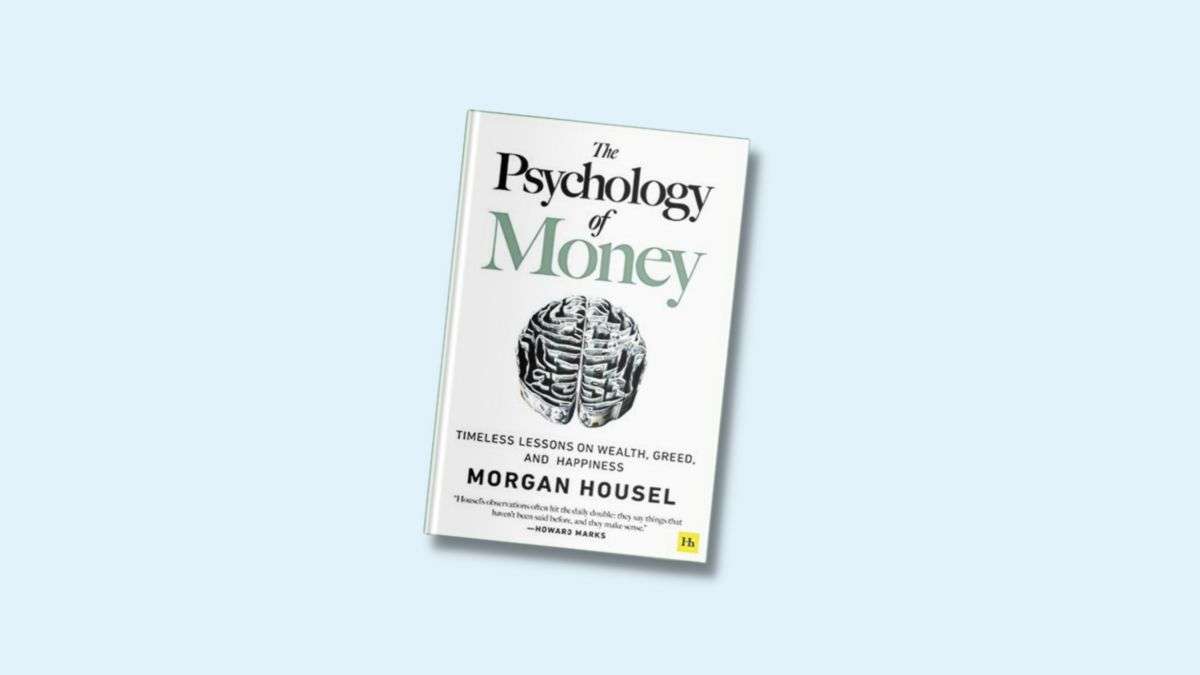Table of Contents
- Introduction
- 1. Understanding the Psychology of Money
- 2. Why Money Matters Beyond Numbers
- 3. Uncovering Hidden Truths About Wealth and Happiness
- 4. Practical Strategies for Financial Well-being
- Conclusion
Introduction
Let’s discuss some essential lessons from The Psychology of Money, a book written by Morgan Housel. Money is a complex topic that impacts nearly every aspect of our lives. Yet few truly understand the psychology behind our financial behaviors and attitudes. This section introduces the concept of uncovering hidden secrets about money to gain valuable insights from disciplines like behavioral economics.
Money and Life
Money has an almost mystical quality in modern society. The numbers in our bank accounts symbolize freedom, security, status, and more. Yet, there may be hidden truths about money that most of us fail to recognize. Understanding these secrets can empower us to make better financial decisions and cultivate healthier relationships with wealth.
The Psychology of Money explores many thought-provoking ideas around the psychology of wealth and happiness. It serves as a critical reference point for uncovering hidden perspectives on money that often get overlooked.
Understanding the emotional and psychological drivers behind our financial behaviors can provide precious insights. The article explores key lessons from the psychology of money to help you embrace more mindful, empowered perspectives.
1. Understanding the Psychology of Money
Money is more than just numbers on a bank statement. Our relationship with money is profoundly psychological, shaped by emotions, experiences, beliefs, and biases. Understanding the psychology behind how we think about, use, and manage money can provide powerful insights for making better financial decisions.
Psychological Aspects Influencing Financial Decisions
Financial decisions are rarely completely rational. The emerging field of behavioral economics shows that cognitive biases and emotional factors play a huge role in money matters. For example, many people are loss averse, feeling the pain of losing money more intensely than the pleasure of gaining money.
This can lead to overly conservative financial strategies. Other biases, like confirmation bias, can cause us to seek out information confirming our existing beliefs about investing. Recognizing these psychological patterns allows us to counteract them.
Emotions, Biases, and Beliefs in Money Management
Emotions are inextricably linked to saving, spending, and investing money. Feelings of fear, greed, regret, and pride often drive financial behaviors more than logic. Cognitive biases also skew our money decisions— overconfidence in our judgment, loss aversion when markets drop, or confirmation bias that reinforces existing investing beliefs.
Our history and upbringing shape core beliefs about whether we see money as a source of security, status, stress, or something else entirely. Increased self-awareness around these emotional and psychological factors can lead to wiser financial management aligned with our goals and values.
The Impact of Behavioral Economics on Personal Finance
Insights from psychology and behavioral economics have enormous implications for managing personal finances. For instance, automatically enrolling employees into retirement savings plans by default dramatically increases participation rates, as people tend to stick with preset options. Having employees commit upfront to allocate a portion of their future salary increases to retirement savings is another example of using behavioral design to influence financial outcomes positively.
Other applications include segmenting customers based on psychological attributes to improve financial marketing campaigns or creating smartphone apps that nudge users toward better money habits. Overall, the psychology of money enriches traditional economic models and opens new possibilities for improving financial well-being.
2. Why Money Matters Beyond Numbers
Money is often viewed solely in terms of its monetary value. These include the numbers in a bank account, the size of a paycheck, or the price tag on material goods. However, our relationship with money goes much deeper than its numerical representation. Understanding the psychology behind money can provide great insight into how our financial attitudes shape major life decisions, relationships, stress levels, and even personal fulfillment.
Attitudes Towards Money Influence Life Paths
How we think about and manage money can determine the opportunities we pursue, where we live, our career choices, and other impactful life directions. For example, someone focused on aggressive early retirement may make very different decisions than someone more motivated by career passion over money. Our money mindset drives behaviors that compound over time into very different lifestyles.
Financial Attitudes Impact Personal Relationships
Money is often cited as a top cause of relationship conflicts and even divorce. Differences in financial priorities, spending habits, budgeting approaches, and money-related communication can significantly strain relationships with friends, family, and significant others. Taking the time to uncover and discuss financial attitudes openly and empathetically can have profound implications for the health of our closest relationships.
Financial Security Supports Mental Health
While money does not guarantee happiness, having some financial security provides peace of mind against life’s unexpected challenges. Without adequate emergency savings or manageable debt burdens, it becomes much more challenging to weather job losses, health issues, or other crises without severe anxiety or depression. Understanding healthy financial boundaries and working towards stability allows us to build resilience and be more present for the people and passions we care about most.
3. Uncovering Hidden Truths About Wealth and Happiness
The pursuit of wealth and happiness are often seen as intertwined goals. However, the correlation between accumulating money and feeling fulfilled is more complex than many assume. While financial security can relieve certain stresses, the link between wealth and happiness levels off at a certain point.
Correlation Between Wealth and Happiness
Research shows that increasing salary is associated with greater reported happiness and life satisfaction, up to an annual income of around $75,000. However, beyond this point, more money does not make people happier on average. This highlights that money facilitates meeting basic needs and eliminating financial struggles, but material wealth alone does not guarantee fulfillment.
Many unconsciously believe that having more money will make them happier without end. However, studies show that extremely wealthy people are not substantially happier than those in the middle class. After basic needs are met, factors like strong social connections, a sense of purpose, generosity, and gratitude seem far more critical for well-being than earning or spending more money.
Balancing Financial Goals and Personal Satisfaction
Rather than getting caught up in pursuing elusive benchmarks for wealth, it is wise to focus first on meeting reasonable financial targets aligned with your values. This will enable you to cover necessities without constant money worries. Beyond that point, aim to nurture non-financial aspects of a fulfilling life like meaningful relationships, rewarding work, community involvement, learning, and physical/mental self-care.
4. Practical Strategies for Financial Well-being
Understanding the psychology behind our financial behaviors is key when managing money wisely. By recognizing common biases and irrational tendencies, we can make more informed decisions aligned with our true priorities.
Cultivate Mindfulness About Spending
Before making major purchases, pause and carefully consider your motivations. Ask yourself if the item aligns with your goals or scratches an itch. Maintaining awareness about unconscious urges prevents impulsive spending.
Automate Savings Goals
Set up automatic transfers from checking to savings accounts to effortlessly build your reserves. Out of sight, out of mind. This makes saving feel painless while keeping short-term spending money accessible.
Reframe Your Relationship with Money
Don’t let net worth define your self-worth. Focus instead on using money as a tool to gain freedom, security, and opportunities for meaningful experiences. This outlook reduces anxiety and resentment.

Anyone can transform their financial habits by using behavioral psychology. Small mindset shifts empower significant changes toward financial well-being.
Conclusion
We have covered key lessons from The Psychology of Money and explored valuable insights into money management and habits. Understanding how emotions, biases, beliefs, and attitudes shape our financial behaviors is vital to making prudent money decisions.
Some of the crucial lessons from the book are the following:
- Money is more than just numbers – it has a profound psychological impact on happiness and life choices
- Wealth accumulation does not always guarantee increased fulfillment
- Common money scripts and biases often lead to poor financial habits
- Cultivating a healthy money mindset is crucial for financial wellbeing
It is important to self-reflect on our money scripts, habits, and attitudes. Some helpful questions to ask:
- What core beliefs drive my financial decisions?
- Do I tend to spend impulsively or compulsively?
- Am I choosing financial security over happiness or fulfillment?
- How could shifts in my money mindset improve my life?
Inspiring a Proactive Money Mindset
Morgan Housel’s The Psychology of Money offers a wide range of insights and narratives that explain how individuals perceive and handle money, framed by the influence of psychology and personal history.
Delving into the concept of a proactive money habit, a set of practices based on disciplined and forward-looking financial behavior can be distilled from the principles laid out in Housel’s work. Key concepts from the book include the importance of tempering expectations with reality, understanding the impact of ego and emotion on financial decisions, and recognizing the variability of financial outcomes due to luck and risk.
A proactive money habit requires an understanding that financial success is not solely based on intelligence or hard work but also on behavior and humility. This entails saving not just to accumulate wealth but also for the flexibility and freedom it provides, which could serve as a buffer against the unpredictability of life. The role of compound interest and the benefits of long-term investments are emphasized, where patience and consistent contributions trump short-term market fluctuations.
Financial decisions should be context-dependent, with the recognition of personal circumstances, goals, and risk tolerance. Recognizing the limits of one’s knowledge and the impossibility of predicting the market with precision is another cornerstone of Housel’s philosophies. Prudence and reflection are advocated over unbridled optimism or pessimism.
In conclusion, to inspire a proactive money habit, one should encourage embracing simplicity in investment strategies, foster a long-term view, develop resilience against setbacks, prioritize financial independence over display of wealth, and maintain an adaptive mindset that is open to learning from both personal experiences and historical financial events. This approach aligns with the teachings in The Psychology of Money, aiming to ingrain self-reflection, patience, and consistent, measured action habits.
